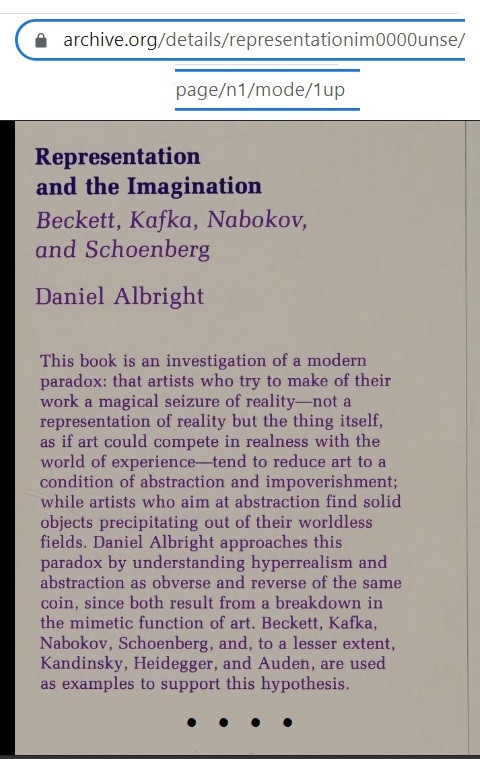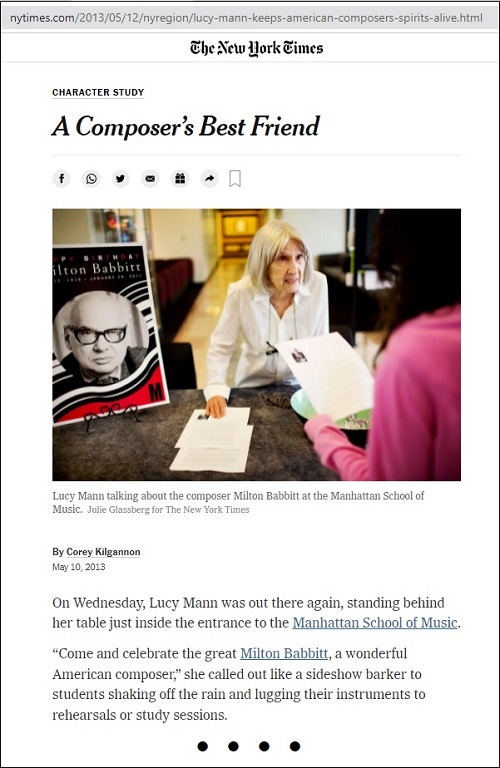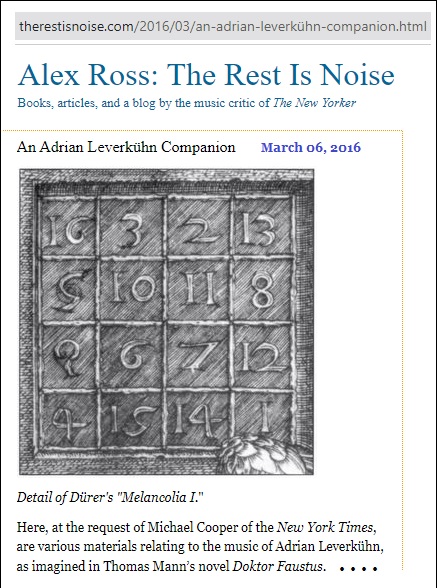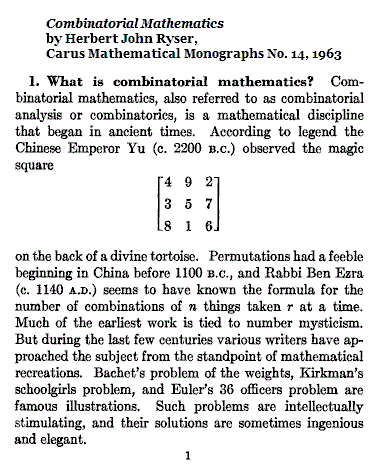* See also The Faustus Square in the May 18 post "The Godfather's Art."
Saturday, May 25, 2024
Saturday, January 20, 2024
Needful Things: Faustus at the Magic Mountain
Image from a Sunday, January 7th, 2024, post now tagged "A Seventh Seal" —
Related image from a "Mathematics for Davos" post of
Thursday, January 18, 2024 —
Wednesday, May 3, 2023
Art Lesson for Doktor Faustus
Exercise: Show that Dürer's 1514 "magic" square is an affine automorphism.
For a solution, see other posts now tagged Affine Squares.
Friday, January 13, 2023
Friday, November 22, 2019
For Faustus on 11/22
This flashback was suggested by today's essay
"The Lamentation of Doctor Faustus," by Andrew Marzoni.
Monday, November 11, 2024
Echo Chamber: “The Room Outside of Time”*
"… as Gombrich well knew, Warburg also
constantly regrets the 'loss' of this 'thought-space' …"
Echo from the Pasaje Bella Vista in Cuernavaca —
“We keep coming back and coming back
To the real: to the hotel instead of the hymns….”
— Wallace Stevens

— Postcard from eBay
|
From Under the Volcano, by Malcolm Lowry, 1947, Chapter I:
Faustus is gone: regard his hellish fall —
Shaken, M. Laruelle replaced the book on the table… he reached to the floor for a folded sheet of paper that had fluttered out of it. He picked the paper up between two fingers and unfolded it, turning it over. Hotel Bella Vista, he read. There were really two sheets of uncommonly thin hotel notepaper…. I sit now in a little room off the bar at four-thirty in the morning drinking ochas and then mescal and writing this on some Bella Vista notepaper I filched the other night…. But this is worst of all, to feel your soul dying. I wonder if it is because to-night my soul has really died that I feel at the moment something like peace. Or is it because right through hell there is a path, as Blake well knew, and though I may not take it, sometimes lately in dreams I have been able to see it? …And this is how I sometimes think of myself, as a great explorer who has discovered some extraordinary land from which he can never return to give his knowledge to the world: but the name of this land is hell. It is not Mexico of course but in the heart. |
* "The room outside of time" is a recurring theme in "The Resort."
Saturday, May 18, 2024
The Godfather’s Art
Cover illustration:
Spies returning from the land of
Canaan with a cluster of grapes.
Colored woodcut from
Biblia Sacra Germanica ,
Nuremberg, Anton Koberger, 1483.
Victoria and Albert Museum, London.

Related material —
The Faustus Square :
Design from 1514
Tuesday, April 23, 2024
Matchless

Design from 1697
Design from 1514
"One of those bells that now
and then rings" — Song lyric
Saturday, July 8, 2023
Blacklist Quote from S10 E20, “Arthur Hudson”
"I am what I am. You made a devil's bargain.
Did you really expect me to stop being the devil?"
Read more at: https://tvshowtranscripts.ourboard.org/
viewtopic.php?f=194&t=64076
See as well yesterday's post CORE and Faustus in this journal.
Saturday, June 10, 2023
Green Mountain, Red Mountain
Tom Wolfe on art theorists in The Painted Word (1975) :
"It is important to repeat that Greenberg and Rosenberg
did not create their theories in a vacuum or simply turn up
with them one day like tablets brought down from atop
Green Mountain or Red Mountain (as B. H. Friedman once
called the two men). As tout le monde understood, they
were not only theories but … hot news,
straight from the studios, from the scene."
Anthony Lane in The New Yorker on June 2, 2023 —
"The album cover was a minor but deliriously popular art form
that was limited not just by shape—a neat fit, incidentally, for
the square format favored by many modish photographers of
the sixties—but also by the prospect of its own inevitable death.
Technology gave, and technology hath taken away."
See as well a mountain along with red and green album covers
in this journal on June 8.
Some will prefer the green and red crystal from Melencolia I
(adapted from the uncolored original) on the cover of the
1948 edition of Doctor Faustus.
Wednesday, June 7, 2023
Exploring Color Space . . . Continues.

"Another story" —
See also Sontag's own account of the Mann meeting.
Related material —

It would seem that Moser is deeply confused about two different
meetings of Sontag with Mann — discussing Doctor Faustus
in 1947, and, later, as a U. of Chicago student, discussing
The Magic Mountain with Mann in 1949 on the Feast of the
Holy Innocents — coincidentally, also the date of her dies natalis
(in the Catholic sense) in 2004.
Saturday, February 4, 2023
More Literary Transformations
Thursday, February 2, 2023
“Solid Objects Precipitating”
Saturday, January 7, 2023
Saturday Reviews
"Might be a nice 20 page essay, but a bomb of a book"
— Herbert Gintis on Taleb's Black Swan , review dated April 10, 2012.
This remark might also be applied to Crumey's Mobius Dick :
Related material for Jungians who enjoy synchronicity —
The Log24 posts from the date of the Gintis review — April 10, 2012.
Tuesday, August 30, 2022
Space Notes
Thursday, January 27, 2022
Malt Does More than Milton Can
Later . . .
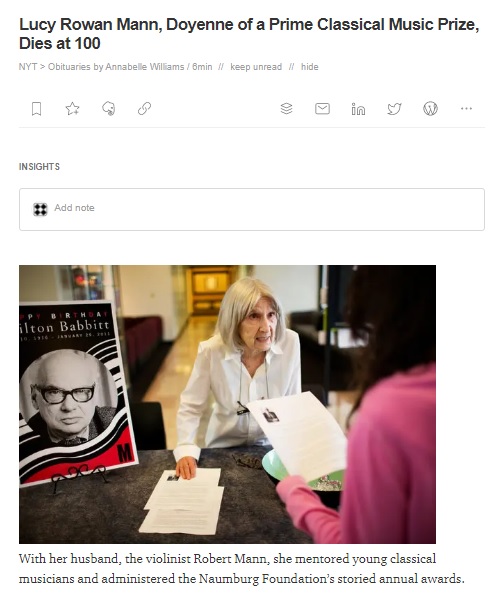
Scholium for Doctor Faustus, suggested by
a search in this journal for Robert Mann —
"Words move, music moves
Only in time; but that which is only living
Can only die. Words, after speech, reach
Into the silence. Only by the form, the pattern,
Can words or music reach
The stillness, as a Chinese jar still
Moves perpetually in its stillness."
— Four Quartets
Monday, January 17, 2022
Finest Trick
"The Magician’s finest trick was to
dismantle the pretensions of genius
while preserving his own lofty stature."
— Alex Ross in The New Yorker , Jan. 17, 2022
Related material —
Meanwhile . . .
Wednesday, April 7, 2021
For Child Buyers
Recent posts on hotels and education suggest a review.
See “Child Buyer” in this journal.
From John Hersey’s The Child Buyer (1960):
“I was wondering about that this morning…
About forgetting. I’ve always had an idea that
each memory was a kind of picture,
an insubstantial picture. I’ve thought of it as
suddenly coming into your mind when you need it,
something you’ve seen, something you’ve heard,
then it may stay awhile, or else it flies out, then
maybe it comes back another time….
If all the pictures went out, if I forgot everything,
where would they go? Just out into the air? Into the sky?
Back home around my bed, where my dreams stay?”
“We keep coming back and coming back
To the real: to the hotel instead of the hymns….”
— Wallace Stevens

— Postcard from eBay
From Under the Volcano, by Malcolm Lowry, 1947, Chapter I:
|
Tuesday, October 15, 2019
The Cartoonist’s Wife
Thursday, December 28, 2017
Thursday, January 7, 2016
Point Omega…
… Continues. See previous episodes.
See as well …
-
Types of Ambiguity : Galois Meets Doctor Faustus,
from December 14, 2010.
-
From Jan. 5, the date of Pierre Boulez's death,
a post on Galois geometry.
- 2016 Joint Mathematics Meetings

The above image is from April 7, 2003.
In Memoriam
The above new David Bowie video may be
viewed, by those who like such things, as
a memorial to a composer who died on
Twelfth Night (Jan. 5), 2016.
Related material: Faustus in this journal.
Wednesday, January 6, 2016
Correspondences
The above passage is from a Dec. 19, 2015, post,
Nunc Stans , on the death of New York Philharmonic
music director emeritus Kurt Masur.

See also a Log24 search for the word "Correspondences."
Saturday, December 19, 2015
Nunc Stans
On conductor Kurt Masur, who reportedly died at 88
in Greenwich, Connecticut, today, Saturday, Dec.19, 2015 —
"Rehearsal conductor at Halle State Theater,
Saxony, East Germany, conductor at Erfurt City Theater
and Leipzig Opera, and guest conductor with Leipzig
and Dresden Radio orchestras, 1951-53…."
Motifs from yesterday's 9 PM post —

Design from 1697
— and from a novel by Thomas Mann:
Design from 1514
Related text —
Wednesday, January 14, 2015
Serial Box
Enotes.com on Herman Wouk's 1985 novel Inside, Outside :
"The 'outside' of the title is the goyish world
into which David’s profession has drawn him;
the 'inside' is the warm life of his Russian-
Jewish family on which he, as narrator, reflects
in the course of the novel."
For a different sort of 'inside' life, see this morning's post
Gesamtkunstwerk , and Nathan Shields's Feb. 8, 2011,
tribute to a serial composer "In Memoriam, Milton Babbitt."
Some other context for Shields's musical remarks —
Doctor Faustus and Dürer Square.
For a more interesting contrast of inside with outside
that has nothing to do with ethnicity, see the Feb. 10,
2014, post Mystery Box III: Inside, Outside, about
the following box:
 .
.
Friday, October 31, 2014
Structure
Introducing a group of 322,560 affine transformations of Dürer’s ‘Magic’ Square
The four vector-space substructures of digits in 1st, 2nd, 3rd, 4th place,
together with the diamond theorem, indicate that Dürer’s square “minus one”
can be transformed by permutations of rows, columns, and quadrants to a
square with (decimal) digits in the usual numerical order, increasing from
top left to bottom right. Such permutations form a group of order 322,560.
(Continued from Vector Addition in a Finite Field, Twelfth Night, 2013.)
Monday, October 14, 2013
Up and Down
Heraclitus, Fragment 60 (Diels number):
|
The way up and the way down is one and the same. ὁδὸς ἄνω κάτω μία καὶ ὡυτή hodòs áno káto mía kaì houté |
See also Blade and Chalice and, for a less Faustian
approach, Universe of Discourse.
Further context: Not Theology.
Tuesday, December 11, 2012
Plenitude
In memory of Charles Rosen:
Related material:
The Magic Square in Doctor Faustus (October 10th, 2012)
Elementary Finite Geometry (August 1st, 2012)
The Space of Horizons (August 7th, 2012)
Chromatic Plenitude (Rosen on Schoenberg)
Thursday, December 6, 2012
Magic Square
This post was suggested by the December 4th death
of modernist composer Jonathan Harvey, 73,
and by Harvey's reflections on his 2007 opera
Wagner Dream .
For related reflections, see the Oct. 10 post on
the Dürer magic square in Mann's Doctor Faustus .
See also a December 2nd post on the Nov. 18 death of
chess grandmaster Elena Akhmilovskaya Donaldson.

Wednesday, October 10, 2012
Melancholia, Depression, Ambiguity
Occurrences of the phrase "magic square" in Lowe-Porter's translation of the Thomas Mann novel Doctor Faustus—
"On the wall above the piano was an arithmetical diagram fastened with drawing-pins, something he had found in a second-hand shop: a so-called magic square, such as appears also in Dürer's Melancolia , along with the hour-glass, the circle, the scale, the polyhedron, and other symbols. Here as there, the figure was divided into sixteen Arabic-numbered fields, in such a way that number one was in the right-hand lower corner, sixteen in the upper left; and the magic, or the oddity, simply consisted in the fact that the sum of these numerals, however you added them, straight down, crosswise, or diagonally, always came to thirty-four. What the principle was upon which this magic uniformity rested I never made out, but by virtue of the prominent place Adrian had given it over the piano, it always attracted the eye, and I believe I never visited his room without giving a quick glance, slanting up or straight down and testing once more the invariable, incredible result."
….
"Adrian kept without changing during the whole four and a half years he spent in Leipzig his two-room quarters in Peterstrasse near the Collegium Beatae Virginis, where he had again pinned the magic square above his cottage piano."
….
" 'The decisive factor is that every note, without exception, has significance and function according to its place in the basic series or its derivatives. That would guarantee what I call the indifference to harmony and melody.'
'A magic square,' I said. 'But do you hope to have people hear all that?' "
….
" 'Extraordinarily Dürerish. You love it. First "how will I shiver after the sun"; and then the houre-glasse of the Melancolia . Is the magic square coming too?' "
….
"Here I will remind the reader of a conversation I had with Adrian on a long-ago day, the day of his sister's wedding at Buchel, as we walked round the Cow Trough. He developed for me— under pressure of a headache— his idea of the 'strict style,' derived from the way in which, as in the lied 'O lieb Madel, wie schlecht bist du ' melody and harmony are determined by the permutation of a fundamental five-note motif, the symbolic letters h, e, a, e, e-flat. He showed me the 'magic square' of a style of technique which yet developed the extreme of variety out of identical material and in which there is no longer anything unthematic, anything that could not prove itself to be a variation of an ever constant element. This style, this technique, he said, admitted no note, not one, which did not fulfil its thematic function in the whole structure— there was no longer any free note."
Review of related material—
Last night's midnight post (disambiguation), the followup 1 AM post (ambiguation), today's noon post (ambiguity), and Dürer in this journal.
The tesseracts of the noon post are related to the Dürer magic square by a well-known adjacency property.
"… the once stable 'father's depression' has been transmuted into a shifting reality that shimmered in a multiplicity of facets."
— Haim Omer, Tel-Aviv University, on Milanese ambiguation therapy,
p. 321 in "Three Styles of Constructive Therapy,"
Constructive Therapies, Vol. 2 , pp. 319-333,
ed. by Michael F. Hoyt (Guilford Press paperback, 1998)
Subtitle for Odin’s Day
The subtitle of Jack Kerouac's novel Doctor Sax
is Faust Part Three.
Related material—
Types of Ambiguity— Galois Meets Doctor Faustus
(this journal, December 14, 2010).
Tuesday, December 14, 2010
Types of Ambiguity —
Galois Meets Doctor Faustus
Galois's theory of mathematical ambiguity (see June 14) —
My principal meditations for some time have been directed towards
the application of the theory of ambiguity to transcendental
analysis. It was a question of seeing a priori in a relation
between quantities or transcendent functions, what exchanges one
could make, which quantities one could substitute for the given
quantities without the original relation ceasing to hold. That
immediately made clear the impossibility of finding many expressions
that one could look for. But I do not have time and my ideas are
not yet well developed on this ground which is immense.
— Evariste Galois, testamentary letter, translated by James Dolan
Thomas Mann on musical ambiguity in his novel Doctor Faustus —
Related material — Some context for the above and some remarks on the German original.
Wednesday, June 17, 2009
Wednesday June 17, 2009
Back to the Real
Colum McCann on yesterday’s history:
“Fiction gives us access to a very real history.”
The Associated Press thought for today:
“Journalism allows its readers to witness history; fiction gives its readers an opportunity to live it.”
— John Hersey, American author (born on this date in 1914, died 1993).
From John Hersey’s The Child Buyer (1960):
“I was wondering about that this morning… About forgetting. I’ve always had an idea that each memory was a kind of picture, an insubstantial picture. I’ve thought of it as suddenly coming into your mind when you need it, something you’ve seen, something you’ve heard, then it may stay awhile, or else it flies out, then maybe it comes back another time…. If all the pictures went out, if I forgot everything, where would they go? Just out into the air? Into the sky? Back home around my bed, where my dreams stay?”
“We keep coming back and coming back
To the real: to the hotel instead of the hymns….”
— Wallace Stevens

Postcard from eBay
From Under the Volcano, by Malcolm Lowry, 1947, Chapter I:
|
Tuesday, June 19, 2007
Tuesday June 19, 2007
Faustus is gone:
regard his hellish fall
— Marlowe
On Faust— today's noon entry and yesterday's "Nightmare Lessons."
On "Meta Physicists"– an entry of June 6, on Cullinane College, has a section titled "Meta Physics."
On Copenhagen— an entry of Bloomsday Eve, 2004 on a native of that city.
"Words, words, words."
— Hamlet
Another metaphysics:
"317 is a prime,
not because we think so,
or because our minds
are shaped in one way
rather than another,
but because it is so,
because mathematical
reality is built that way."
— G. H. Hardy,
A Mathematician's Apology
Tuesday June 19, 2007
— Title of a novel
by Willard Motley
From Under the Volcano, by Malcolm Lowry, 1947, Chapter I:
Faustus is gone: regard his hellish fall —
"Shaken, M. Laruelle replaced the book on the table… he reached to the floor for a folded sheet of paper that had fluttered out of it. He picked the paper up between two fingers and unfolded it, turning it over. Hotel Bella Vista, he read."
From The Shining, Chapter 18:
"In 1961 four writers, two of them Pulitzer Prize winners, had leased the Overlook and reopened it as a writers' school. That had lasted one year…. Every big hotel has got a ghost. Why? Hell, people come and go…. (In the room the women come and go)" –Quoted in Shining Forth

Photo: jewishbookweek.com
Jacques Derrida and Helene Cixous
Time of this entry:
Noon.
Thursday, October 12, 2006
Thursday October 12, 2006
This year’s winner of the
Nobel Prize in Literature
has written a novel that
“uses the art of
miniature illumination,
much as Mann’s
Doctor Faustus
did music, to explore
a nation’s soul”
(John Updike in
The New Yorker).
For the explorer,
here is a
miniature story:
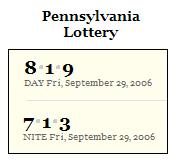
This story was published on
September 29, 2006,
the Feast of St. Michael
and All Angels.
For illumination of the story,
see Log24, Sept. 30, 2006.
The author is unknown.
Wednesday, January 8, 2003
Wednesday January 8, 2003
Into the Woods
From the Words on Film site:
"The proximal literary antecedents for Under the Volcano are Dante Alighieri’s Divine Comedy, especially The Inferno, on the one hand, and on the other, the Faust legend as embodied in the dramatic poem Faust by Johann Wolfgang von Goethe and the play Doctor Faustus by Christopher Marlowe."
|
"In the opening page of the novel, we find the words "The Hotel Casino de la Selva stands on a slightly higher hill …" (Lowry, Volcano p. 3). "Selva" is one of the Spanish words for "woods." One of the cantinas in the novel is named El Bosque, and bosque is another Spanish word for "woods." The theme of being in a darkling woods is reiterated throughout the novel." |
Literary Florence |
Tonight's site music is "Children Will Listen,"
by Stephen Sondheim, from "Into the Woods."
Stephen Hawking is 61 today.
An appropriate gift might be a cassette version of
The Screwtape Letters, by C. S. Lewis,
narrated by John Cleese.
See also this review of Lewis's That Hideous Strength
and my entries of Dec. 31, 2002, and Jan. 4, 2003.














